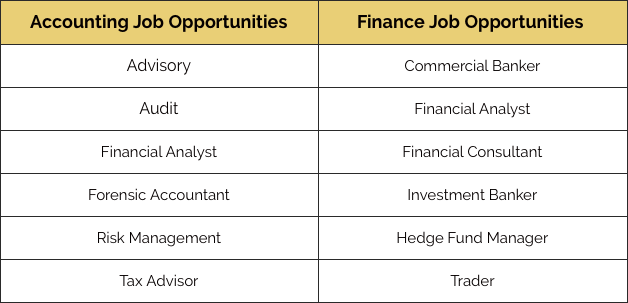Table of ContentsEverything about What Is Derivative In FinanceSome Of What Is A Derivative Market In FinanceNot known Details About What Is Derivative Instruments In Finance What Is A Finance Derivative Can Be Fun For Everyone
However, if a stock's rate is above the strike price at expiration, the put will be worthless and the sellerthe choice writergets to keep the premium as the alternative expires. If the stock's price is below the strike price at expiration, the call will be useless and the call seller will keep the premium.
These are known as American-style alternatives, however their usage and early exercise are uncommon. As the above examples highlight, derivatives can be a beneficial tool for companies and financiers alike. They offer a method to secure rates, hedge against unfavorable motions in rates, and alleviate risksoften for a restricted expense.
On the downside, derivatives are tough to worth since they are based upon the cost of another possession. The threats for OTC derivatives consist of counter-party dangers that are tough to predict or value as well. what is a derivative in finance. Most derivatives are also conscious modifications in the amount of time to expiration, the cost of holding the underlying possession, and interest rates.
Pros Lock in costs Hedge versus threat Can be leveraged Diversify portfolio Cons Difficult to worth Topic to counterparty default (if OTC) Complex to understand Delicate to supply and require aspects Also, considering that the acquired itself has no intrinsic valueits value comes only from the underlying assetit is vulnerable to market belief and market risk - what do you learn in a finance derivative class.

Finally, derivatives are generally leveraged instruments, and utilizing leverage cuts both methods. While it can increase the rate of return it also makes losses mount faster. Many derivative instruments are leveraged. That implies a percentage of capital is needed to have an interest Visit this site in a large quantity of value in the underlying asset.

Financial instrument In financing, a derivative is an agreement that derives its value from the performance of an underlying entity. This underlying entity can be an possession, index, or rates of interest, and is typically merely called the "underlying". Derivatives can be utilized for a number of functions, consisting of insuring versus rate movements (hedging), increasing direct exposure to cost movements for speculation or getting access to Learn more otherwise hard-to-trade possessions or markets.
The Only Guide to What Is A Derivative Market In Finance
Many derivatives are traded over-the-counter (off-exchange) or on an exchange such as the Chicago Mercantile Exchange, while many insurance contracts have actually turned into a separate industry. In the United States, after the monetary crisis of 20072009, there has been increased pressure to move derivatives to trade on exchanges. Derivatives are one of the three main categories of monetary instruments, the other 2 being equity (i.e., stocks or shares) and financial obligation (i.e., bonds and home mortgages).
Bucket stores, outlawed in 1936, are a more current historical example. Derivatives are agreements in between 2 celebrations that define conditions (particularly the dates, resulting values and definitions of the underlying variables, the parties' contractual commitments, and the notional quantity) under which payments are to be made between the celebrations. The assets include commodities, stocks, bonds, rates of interest and currencies, but they can also be other derivatives, which includes another layer of intricacy to correct evaluation.
From the financial point of view, monetary derivatives are cash streams that are conditioned stochastically and marked down to present worth. The market risk intrinsic in the underlying possession is attached to the financial derivative through legal arrangements and thus can be traded independently. The underlying asset does not need to be obtained.
This likewise supplies a substantial amount of liberty relating to the contract design. That contractual flexibility allows acquired designers to modify the involvement in the efficiency of the hidden possession practically arbitrarily. Hence, the involvement in the market value of the underlying can be effectively weaker, more powerful (leverage result), or carried out as inverted.
There are 2 groups https://www.openlearning.com/u/lance-qfitik/blog/SomeKnownDetailsAboutHowToMakeInstantMoneyPersonalFinanceReddit/ of acquired agreements: the independently traded non-prescription (OTC) derivatives such as swaps that do not go through an exchange or other intermediary, and exchange-traded derivatives (ETD) that are traded through specialized derivatives exchanges or other exchanges - what is derivative market in finance. Derivatives are more typical in the modern-day age, however their origins trace back several centuries.
Derivatives are broadly classified by the relationship between the hidden asset and the derivative (such as forward, option, swap); the kind of underlying property (such as equity derivatives, foreign exchange derivatives, rate of interest derivatives, product derivatives, or credit derivatives); the marketplace in which they trade (such as exchange-traded or over-the-counter); and their pay-off profile.
About What Is A Finance Derivative
Lock products (such as swaps, futures, or forwards) obligate the contractual parties to the terms over the life of the agreement. Alternative items (such as interest rate swaps) offer the purchaser the right, however not the commitment to go into the agreement under the terms defined. Derivatives can be utilized either for risk management (i.e.
making a financial "wager"). This distinction is very important due to the fact that the former is a sensible aspect of operations and monetary management for lots of firms across numerous industries; the latter deals supervisors and financiers a risky chance to increase profit, which may not be appropriately divulged to stakeholders. Along with many other monetary services and products, derivatives reform is a component of the DoddFrank Wall Street Reform and Customer Defense Act of 2010.
To offer an idea of the size of the acquired market, has reported that as of June 2011, the over the counter (OTC) derivatives market amounted to roughly $700 trillion, and the size of the market traded on exchanges amounted to an additional $83 trillion. For the 4th quarter 2017 the European Securities Market Authority approximated the size of European derivatives market at a size of 660 trillion with 74 million impressive contracts.
For example, in 2010, while the aggregate of OTC derivatives surpassed $600 trillion, the value of the marketplace was approximated to be much lower, at $21 trillion. The credit-risk equivalent of the derivative contracts was approximated at $3.3 trillion. Still, even these scaled-down figures represent huge amounts of cash. For viewpoint, the budget plan for overall expenditure of the United States federal government during 2012 was $3.5 trillion, and the total existing value of the U.S.
On the other hand, the world yearly Gdp is about $65 trillion. At least for one kind of derivative, Credit Default Swaps (CDS), for which the fundamental danger is thought about high [], the greater, small value stays appropriate. It was this type of derivative that investment tycoon Warren Buffett referred to in his well-known 2002 speech in which he cautioned against "monetary weapons of mass destruction".
Derivatives are used for the following: Hedge or to reduce threat in the underlying, by participating in an acquired contract whose worth relocations in the opposite direction to their underlying position and cancels part or all of it out Produce choice ability where the worth of the derivative is linked to a specific condition or event (e.g., the underlying reaching a particular price level) Acquire exposure to the underlying where it is not possible to sell the underlying (e.g., weather condition derivatives) Offer take advantage of (or tailoring), such that a little motion in the underlying worth can trigger a large difference in the value of the derivative Speculate and earn a profit if the worth of the hidden property moves the way they expect (e.g.
The Best Guide To What Is Derivative In Finance
For example, an equity swap enables an investor to receive constant payments, e.g. based on LIBOR rate, while preventing paying capital gains tax and keeping the stock. For arbitraging purpose, permitting a riskless earnings by concurrently entering into transactions into two or more markets. Lock products are theoretically valued at zero at the time of execution and hence do not usually require an up-front exchange in between the celebrations.
Significantly, either party is for that reason exposed to the credit quality of its counterparty and is interested in safeguarding itself in an event of default. Choice products have instant worth at the outset because they provide specified protection (intrinsic worth) over an offered period (time worth). One common type of alternative item familiar to numerous customers is insurance for homes and autos.